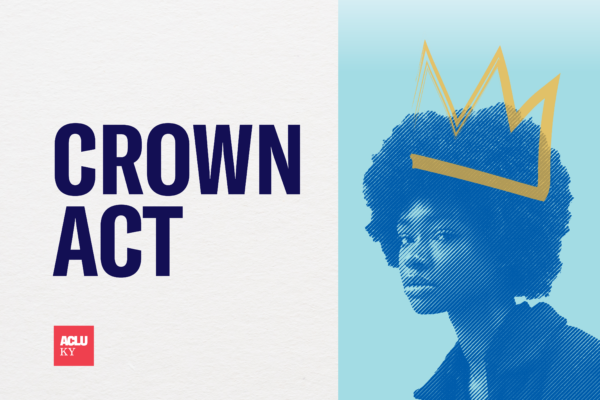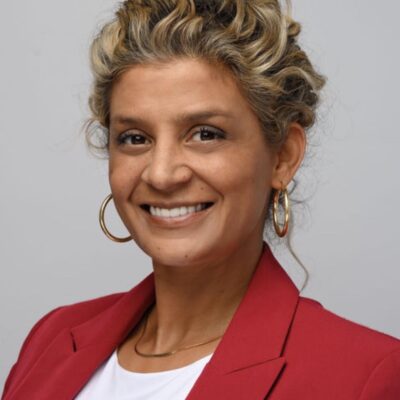Untangling my hair and my self-identity is tough enough on its own. Imagine trying to do it under a barrage of questions from people who have never been in my shoes – the insensitive comments and the non-consensual touching.
Hair discrimination is not new and not unique to me. I remember recognizing the differences between myself and those around me as a young child. No one else in my class had beads in their hair or more than one ponytail. I was always the one who was different. As a shy, self-conscious kid, I did not want to answer the constant questions about my life, my home, my parents, my clothes, my accent – or the most frequent curiosity – my hair.
My ever-changing hairstyles were a novelty to my classmates in Eastern Kentucky. They would always tell me how I was ‘cute’ in a manner that ensured I knew they saw themselves as being above me. It never felt like my classmates accepted my curls and this made it difficult for me to even accept myself. Years later, my daughter began experiencing the same discrimination. Our struggle isn’t unique, and it permeates every facet of life.
CROWN is an acronym for Creating a Respectful and Open World for Natural Hair. This law was first introduced in California in 2019, and the first CROWN Act expanded the definition of race in the Fair Employment and Housing Act and the state Education Code to ensure protection from discrimination in workplaces and schools. Historically, hair discrimination has been rooted in white, European standards of beauty, and the accompanying stereotypical view that traditionally Black hairstyles are “unprofessional” or “unkempt.” Last year, the CROWN Act passed out of committee with strong bipartisan support in both committee votes and co-sponsors.
Many employers and schools ban, restrict or stigmatizing hairstyles closely associated with Black people. Black people have a wide range of hair textures, but many styles are closely associated with Black people, including locs, cornrows, twists, braids, Afros, fades and Bantu knots. For instance, in 2014, the United States Army explicitly banned locs, calling them “unkempt or matted.”
In 2017, a Black woman who worked at Banana Republic reportedly was told by her store manager that her braids were inappropriate and “too ‘urban’ and ‘unkempt’ for [the store’s] image.” This overt discrimination has even affected children. In 2018, a six-year-old child was allegedly forced to give up a scholarship at a private school because the school would not permit him to wear locs. The style was explicitly prohibited in the student handbook along with “mohawks, designs, unnatural color, or unnatural designs.”
These policies – including school and workplace dress codes – are rooted in the pervasive stereotype that Black hairstyles are inferior and have subjected Black people to psychological, physiological and financial harm.
Hair discrimination is a real issue for us. Ensuring these protections are in place for all Kentuckians is a step in the right direction towards preventing and eliminating discrimination based on race, religion, gender, sexual orientation, gender identity or expression, national origin, disability and other protected characteristics. Some Kentucky communities have passed local protection, including Louisville and Covington. It’s time for us to follow in the footsteps of other states, like Tennessee, and put in place protections statewide to support Black and Brown Kentuckians no matter where they live.
It’s time for Kentucky lawmakers to pass the CROWN Act.


